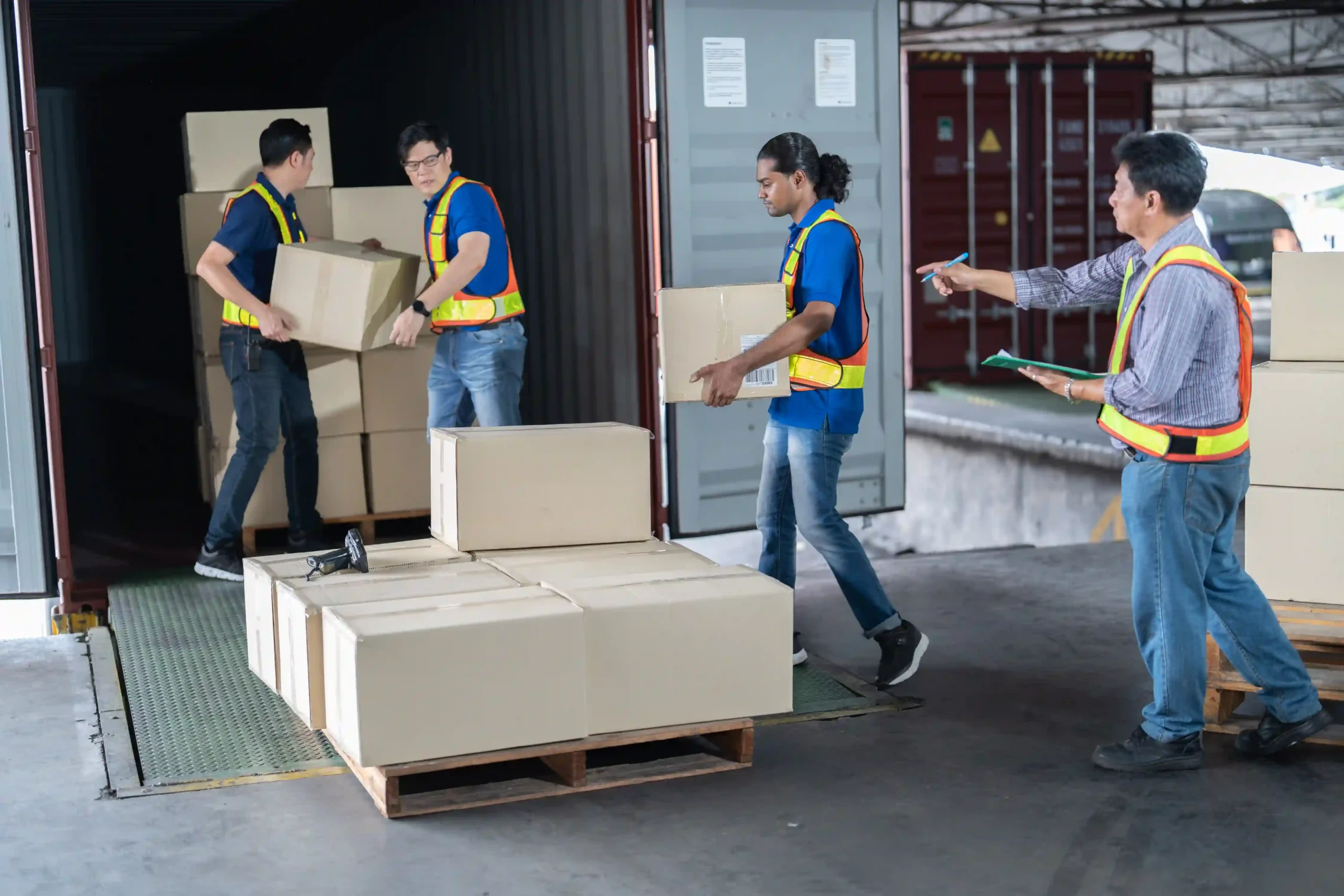At its core, FTZ customs refers to the rules, procedures, and benefits of importing goods into a U.S. Foreign Trade Zone (FTZ), where they are considered outside of U.S. Customs territory.
This means duties and taxes are deferred or reduced until the goods enter the market—or not paid at all if they’re re-exported. The goal? Better control, better savings, and fewer headaches.

As the president of Tri-Link FTZ, I’ve had a front-row seat to how these customs processes work day in and day out. When a shipment enters one of our zones, it doesn’t immediately go through standard CBP customs like it would at a port.
Instead, it’s held in a secure, designated zone—where we store, relabel, kit, assemble, or even inspect the goods. This flexibility allows our clients to wait until it makes sense—financially or operationally—to clear customs.
Think about the timing. If you’re waiting on FDA approval, or need to transform a component before shipping it into the U.S. market, FTZ customs rules allow you to hold it duty-free until you’re ready.
If it never ships into the U.S.? No duty ever gets paid. That kind of control makes a massive difference for clients with large inventories or international distribution plans.
A lot of businesses think once something’s in an FTZ, it’s a free-for-all. That couldn’t be further from the truth. U.S. Customs and Border Protection (CBP) plays a central role in FTZ operations.
We maintain direct relationships with CBP to ensure that every movement in and out of the FTZ is accounted for, tracked, and verified with exacting detail. CBP approves zone applications, reviews security protocols, and checks our record-keeping.
In fact, when we help a client apply to operate under FTZ customs procedures, one of the first things we advise on is how to meet CBP’s expectations. These aren’t guidelines—they’re strict requirements.
We’ve helped dozens of companies set up custom inventory management systems just to meet these standards. And we’ve seen what happens when that’s not done right: audits, fines, and delays.
Operating inside an FTZ doesn’t mean you’re off the hook—it means you need to be sharper than ever. Over the years, we’ve seen that companies who treat compliance as a box to check often run into serious trouble.
FTZ customs compliance means meeting CBP’s rules on inventory tracking, security, data accuracy, and transaction logging. Every item coming in or out of the zone must be recorded in real-time, and any discrepancies can result in fines or even revoked privileges.
We guide clients through this from day one. From building digital dashboards to prepping for annual reviews, our team ensures businesses meet every rule without slowing down operations.
Whether you’re relabeling a batch of imported tech parts or assembling automotive kits, we make sure it’s done with compliance in mind. It’s not just about following rules—it’s about building a system that prevents costly mistakes before they happen.

Let me tell you—if you’re not leveraging FTZ customs procedures, you’re probably paying more than you should. One of the biggest wins we deliver is duty deferral.
Your goods can sit in our FTZ warehouse for months without you paying a single dollar in duties. Not until they leave for U.S. consumption.
Even better? If you decide to export them instead, you pay nothing at all.
That’s duty exemption. We also help clients take advantage of duty reduction by assembling or altering products in a way that qualifies for a lower duty rate.
Let’s say you’re importing bicycle parts—if you assemble the full product inside the zone, your duty category may change, reducing what you owe. Other perks include Merchandise Processing Fee (MPF) reductions, because we consolidate entries for you.
And if your goods are subject to quotas, we can hold them until the timing’s right. FTZ customs lets you delay those quotas and ship only when it’s strategic.
For clients managing millions in inventory, these advantages aren’t minor—they’re game-changers. Read more here.
Starting an FTZ customs operation doesn’t happen overnight, but with the right support, it doesn’t have to be a headache. We walk clients through the FTZ Board application, site designation, and CBP requirements.
That includes showing how their operations meet public interest standards and proving the need for a local FTZ. For many, using the Alternative Site Framework (ASF) is the fastest and most cost-effective route.
Under ASF, we can help designate a site within 30 days. Whether it’s a magnet site for shared use or a usage-driven site for your specific facility, our team handles the details—security systems, inventory control, and record-keeping protocols.
These steps are crucial because you must prove to CBP that your facility can control and report on every unit of inventory. That’s where our 35 years of experience really shines. Read more here.
We’ve had clients save hundreds of thousands of dollars in a single quarter just by switching to FTZ customs workflows. One of our most successful partnerships involved an electronics distributor based in the Northeast.
They were paying duties on products that often sat unsold for months, tying up cash flow. After shifting their inventory to our FTZ, they only paid duty when units shipped out.
It freed up capital, reduced waste, and gave them flexibility they didn’t have before. Another client, an auto parts importer from Germany, used our FTZ to kit parts for different U.S. manufacturers.
Because the kits were assembled and labeled within the FTZ, they were reclassified under a different tariff code—with a much lower duty rate. The savings went straight to their bottom line, and CBP had no issues because every change was tracked and reported properly.

I can’t count how many times we’ve had to step in after a business ran into trouble trying to manage an FTZ on their own or with an inexperienced partner. The biggest mistake?
Poor inventory tracking. If CBP inspects your site and finds errors, you’re on the hook.
Others fail to properly classify goods after value-adding operations—missing out on lower duty rates or violating customs rules unintentionally.
Another common issue is assuming any operation can be done inside an FTZ. Some activities require specific FTZ Board approval.
We make sure your business applies for and receives the correct permissions before any work begins. Our goal is to protect your operation and make sure FTZ customs works for you—not against you.
If you’re importing, assembling, distributing, or exporting goods, the answer is most likely yes. With FTZ customs, you’re not just avoiding unnecessary costs—you’re gaining control over your entire supply chain.
You’re staying compliant with U.S. Customs and Border Protection while unlocking powerful benefits that traditional warehousing simply can’t offer. At Tri-Link FTZ, we’ve been helping businesses navigate this space for more than three decades.
Our clients trust us not just for our logistics capabilities, but because we understand how FTZ customs fits into their bigger strategy. We don’t believe in a one-size-fits-all approach. We build tailored solutions that actually work.
Want to find out how this could work for your business? Visit our About Page to learn more about what makes our approach different.
Share this article
We have other resources available upon request as well as one-on-one support and personalized answers, just like our services.
Simply contact us anytime and we’ll get back to you to answer your questions and provide meaningful answers that show you how Tri-Link supports your logistics, reduces costs, and accelerates efficiency.
Tri-Link delivers exceptional FTZ and 3PL services tailored to your global trade needs.
Our solutions combine innovation, quality, and efficiency to exceed your expectations and meet your specific requirements.